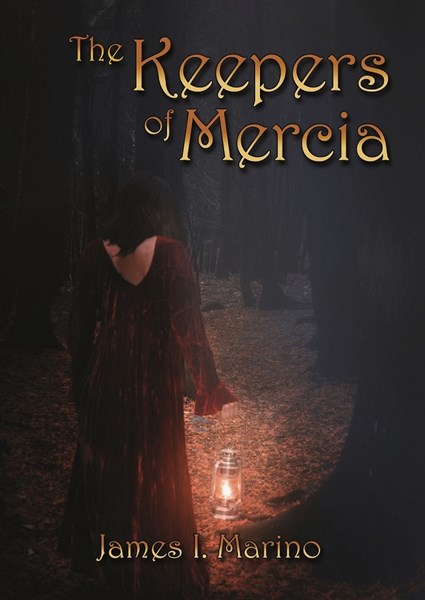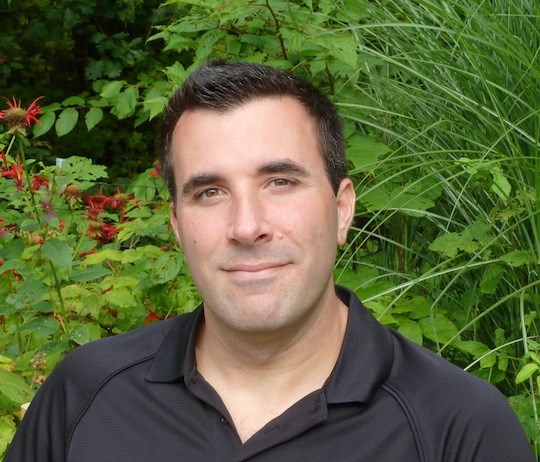MANCHESTER, N.H., Nov. 21, 2014 (GLOBE NEWSWIRE) -- These are good times for readers (and writers) of fantasy and sci-fi. The genre has been gaining in market share for some time, and recently in literary gravitas as well.
So new fantasy novelist James Marino, 42—whose debut work, "The Keepers of Mercia," was published earlier this month—is preparing to ride that wave. And the fact that he never imagined himself a fantasy writer as he was going through school might work to his advantage, actually.
With Marino, as with most writers, it all began with the stories he devoured in childhood. "In those days, it was all adventure stories," Marino said. "I loved 'Johnny Tremain,' for example. I loved Jack London. I still do."
As he grew older, he grew into the literary adventure stories of Ernest Hemingway, and then the Sturm und Drang of novels by Thomas Hardy and the Brontë sisters. Conspicuously absent during all this journey were the stories of such evangelists for fantasy as J.R.R. Tolkien, C.S. Lewis, or Ursula Le Guin.
Marino's vocation as a writer crept upon him unawares, though he had always made up adventure-style stories in his head for his own entertainment. He earned the first of his two undergraduate degrees in criminal justice, then went back to school for a degree in English from the University of New Hampshire. There Marino found that he was good at the critical essays he did on Shakespeare and the rest of the literary canon.
If he could write essays, he figured, then he could write stories as well, and in 2007 he went directly from UNH into Southern New Hampshire University's low-residency MFA in Fiction and Nonfiction program. This required a writing sample as part of his application—and so Marino sat down to write what would become, after much revision, the first twenty pages of "The Keepers of Mercia."
"I was surprised as anyone that I was writing fantasy," Marino said. "It just happened."
"In our program, we work on literary, character-based narratives, and we really don't encourage applicants working on genre projects," said Richard Adams Carey, assistant director of SNHU's MFA program. "But if we come across someone like James, whose work displayed real literary promise, and whose story truly is animated by complicated, real-life characters—well, sometimes we make exceptions."
In fact "The Keepers of Mercia" is a coming-of-age story not so remote from the world of Hardy and the Brontës. But once Marino earned his MFA in 2009 with a complete book manuscript in hand, the marketplace required one final revision.
"I aimed high, and targeted top New York agents and publishers, and collected about a hundred rejections," Marino said. "Then one day I read on a publisher's website, 'Please don't send us another story about a young farmer who goes off on an adventure.'"
Uh-oh—that was precisely the basic premise of "Mercia." Rather than recast the whole novel, however, Marino went to his protagonist and changed him from a young farmer to a young farm girl named Binette. "And of course that altered the whole dynamics of the story in several interesting ways," Marino said. "Within two months I had a contract."
Living in a world like medieval Europe, but one infused with elements of Anglo-Saxon myth and magic, Marino's Binette is part of a culture menaced by a coalition of religious extremists. Her alliance with and idolization of Anon, a veteran Keeper charged with the defense of Mercia, is part of a journey towards that rueful sort of knowledge with which Hemingway's heroes are intimate. If the narrative strays outside the usual conventions of fantasy, that's on the strength of a background built by the author outside the genre.
The novel was published on November 6 by Texas-based Black Rose Writing. Some two weeks later, Ursula Le Guin was honored at the National Book Awards with a Medal for Distinguished Contribution to American Letters. In her speech, she welcomed fellow fantasy/sci-fi writers to the literary mainstream, after decades of watching "the beautiful awards," she said, go only to the "so-called realists."
Marino, who lives in Canterbury, New Hampshire, is confident in the essential realism of his story, and is planning a sequel.
And was publication day filled with excitement for this first-time author? "Well, not really," Marino laughed. "Too busy. I'm in operational mode, visiting book clubs, doing readings, reporting for interviews."
The next stop is a reading and signing at Concord, New Hampshire's famed Gibson's Bookstore on November 24. The journey towards "the beautiful awards" begins with such ordinary events.
Photos accompanying this release are available at:

